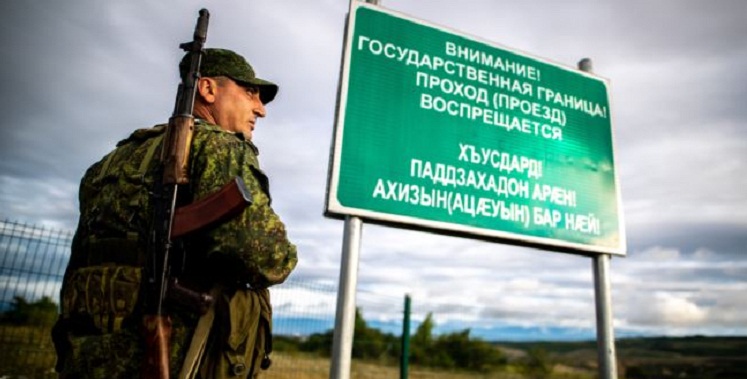De facto Tskhinvali gov’t says Tbilisi attempting provocations at occupation line

Tension at the occupation line with the Russian-occupied Tskhinvali region continues. Photo: Tass.
De facto Security Committee of Georgia’s Russian-occupied Tskhinvali region says that Tbilisi is getting ready for “a large-scale provocation” at the occupation line, near the villages of Chorchana and Tsnelisi.
The de facto agency says that the central Georgian government does not allow Georgian journalists and NGOs at the “border,” and they have no access to unbiased information regarding current developments on the ground.
Tskhinvali says that the “illegal police post [of the central Georgian government] at the village of Tsnelisi [Kareli municipality, under Russian control], and the actions of Georgian personnel there increase security threats and might lead to a conflict.”
 The occupying forces opened the first so-called police-post on Tbilisi-administered territory, near the villages of Tsnelisi and Chorchana early in September.
The occupying forces opened the first so-called police-post on Tbilisi-administered territory, near the villages of Tsnelisi and Chorchana early in September.
The Georgian State Security Service says that the statement of the de facto government is the “part of the disinformation campaign which has been particularly active over the past several months.”
The disinformation campaign aims to justify the illegal activities of the occupying forces,” the Georgian State Security Service said.
The agency says that the central Georgian government is taking all measures to ensure peace and the safety of locals on the ground.
Georgian Parliament Speaker Archil Talakvadze said that at the time when Georgian territories are occupied the accusations regarding provocations "are absurd and illogical."
He said that Georgia will reintegrate its territories only peacefully.
After the construction of the police post on Tbilisi-administered territory in the village of Chorchana in August, the occupying forces constructed two so-called police posts on the Tbilisi-controlled territory and closed the so-called border to Akhalgori district.
The European Monitoring Mission and the international community say that the actions of the Russia-controlled de facto authorities are provocative, strain the situation on the ground and violate fundamental human rights.
 Tweet
Tweet  Share
Share